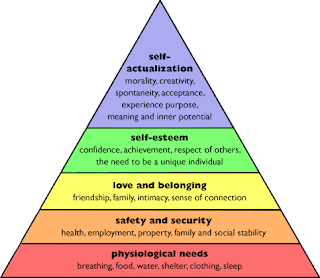I just can't stop myself when it comes to a good twitter debate, even when it gets really challenging to put forward an argument. The twitter handles start to take up the space in the 140 character limit, as more people get interested in following the thread.
Last night, Stuart Kelly (
@stuartkellynz) hosted the first #digitaledchat on Twitter. It is interesting to see the same issues and differences in opinion appearing in other countries. The one I got into was the handwriting versus digital text debate. See my earlier post on this for my thoughts:
The Great Debate - To Type or to Hand Write? That is the Question. It appears to me that some educators need to be more future focussed.
A connected thread focussed on using today's technologies today, instead of "preparing" students for their use tomorrow. I made the point that we have no idea what technologies our children will use in their future but we have lots of devices that make our lives easy now. 3D printers, for example. They are not a fantasy device available to a very few, and what they are capable of representing is becoming more and more powerful almost daily.
 |
| Image labelled for reuse - http://bit.ly/1g4aDhd |
Leigh Hynes (
@leighhynes) makes a very good argument for using cell phones in classrooms. Read her blog
here.
She argues that cell phones are not disengaging our students from classroom content; it's the relevance of the lesson content and style that is the problem.
'If you are worried about engagement, THE Journal published 6 key drivers of student engagement. They are relevant learning, personalised learning, collaborative learning, connected learning, information literacy and dialogical/dialectical thinking, Digital technologies enhance each and every one of these and therefore using a phone in class fits the bill. I am sure that if you take the plunge and allow your students to use their phones in class, you will see a lot of rewards in terms of student engagement.
I am still in awe of Zac Hawkins words in 2012 (see slide 5). He was a 15 year old student who was imploring schools to embrace BYOD. His words? - "In an age of information technology, the last limiting factor that you would expect would be the education system."'
Remember that it is not just about including new technologies. It is primarily about meeting the needs of the learner. Derek Wenmoth (
@dwenmoth), in his post,
Does a MLE Suit All Learners? asks us to think about this as the most important factor. No one size fits all and no one learning space with modern trappings and devices is the answer.
It's like asking "does an MLE suit all learners?" when the equally valid, yet often uncontested question is "does a traditional egg-crate classroom suit the needs of all learners?"
He reminds us to dig deep into our practice. Those in school leadership need to look at current systems, routines and parameters and ask questions of all of them. Do we need to disrupt the status quo to make learning more relevant for future needs, and to ensure that our learners - and teachers - are more engaged in what they are doing? And how do we do this? What do we reinvent or retain?
Michelle Simms (
@MSimmsNZ) moderated a discussion last night too - #libchatnz - on "Makerspaces"(I've included the slides below as well). What teachers hoped for was a return to play, discovery, creativity and problem solving, qualities our students need today and in the future.
I'm still reading
Drive, and I like what Daniel Pink says about intrinsic motivation: the inner drive we all have to be autonomous - not just empowered by someone else - and how this makes a difference.
 |
| Quoting Richard Ryan, p.108, Drive, by Daniel Pink. |
This idea idea, which I believe is being termed "agency" out there in the educational jargon, needs to be further explored. Genius hour and 20% time are touted by some teachers, but I'm not sure that all teachers have seen its real potential. Pink does warn us that autonomy needs scaffolding.
I'd love to finish this post with a pithy, well written home truth about "the right way," but I don't have one. Pink talks about another aspect of motivation - our drive for mastery - and how the intrinsically motivated never reach it. We're always on the journey to better what we do, but like an asymptote, maybe we can't ever expect to get all the answers. I still have questions. And I'm really pleased that there are so many others who are asking questions too.




